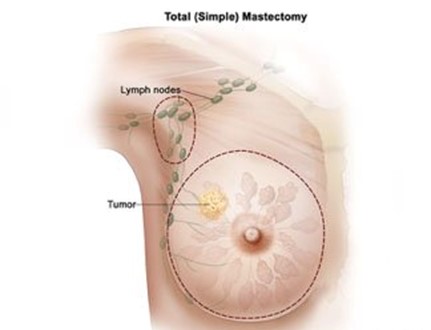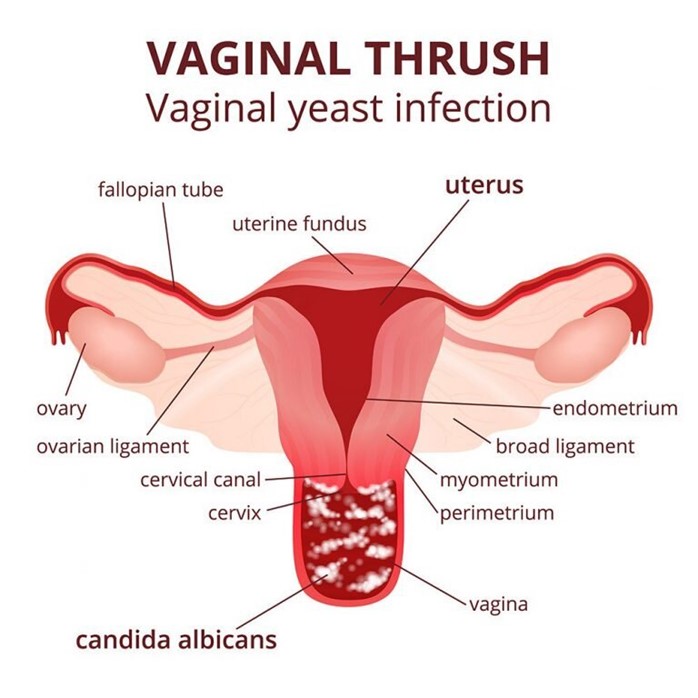A nurse is providing discharge teaching for a client who is postoperative following a simple mastectomy. The client is to begin outpatient radiation therapy the next day. Which of the following instructions about maintaining skin integrity should the nurse include?
Do not apply heat to the area of irradiation.
Use an antibiotic ointment to treat skin breakdown.
Lubricate the skin with hypoallergenic lotion.
Do not wash the area of irradiation.
The Correct Answer is A
Choice A: Do not apply heat to the area of irradiation. This instruction is correct and should be included in the teaching. Applying heat to the area of irradiation can increase inflammation, pain, or burning sensation on the skin. The client should avoid heat sources such as hot water, heating pads, or sun exposure in the area of irradiation.
Choice B: Use an antibiotic ointment to treat skin breakdown. This instruction is not correct and should not be included in the teaching. Using an antibiotic ointment to treat skin breakdown can cause allergic reactions, infection, or interference with radiation therapy. The client should consult with her provider before using any topical products in the area of irradiation.
Choice C: Lubricate the skin with hypoallergenic lotion. This instruction is not correct and should not be included in the teaching. Lubricating the skin with hypoallergenic lotion can cause irritation, infection, or interference with radiation therapy. The client should avoid applying any lotions, creams, or oils on the area of irradiation unless prescribed by her provider.
Choice D: Do not wash the area of irradiation. This instruction is not correct and should not be included in the teaching. Washing the area of irradiation can help prevent infection, remove dead skin cells, and reduce odor. The client should wash the area of irradiation gently with mild soap and water, pat it dry, and avoid rubbing or scrubbing.

Nursing Test Bank
Naxlex Comprehensive Predictor Exams
Related Questions
Correct Answer is C
Explanation
Choice A: White- or flesh-colored papillary growths in the genital area are not the correct answer because they are more likely a finding of another STI, such as HPV. HPV can cause genital warts that look like small bumps on or around the genitals. Genital herpes does not cause warts, but blisters or sores that may burst and crust over.
Choice B: Green penile discharge is not the correct answer because it is more likely a finding of another STI, such as gonorrhea. Gonorrhea can cause a thick, yellow-green discharge from the penis that may have a foul odor. Genital herpes does not cause discharge from the penis but may cause pain or burning during urination.
Choice C: Influenza-like symptoms are the correct answer because they are a possible finding of genital herpes. Genital herpes can cause systemic symptoms such as fever, headache, muscle aches, or swollen lymph nodes during an outbreak. These symptoms may resemble those of influenza (the flu) but are caused by HSV infection.
Choice D: Anuria is not the correct answer because it is not a finding of genital herpes. Anuria is a condition that causes a complete absence of urine output due to kidney failure or obstruction. Genital herpes does not affect the kidneys directly but may cause urinary retention if there is severe swelling or pain in the genital area.

Correct Answer is C
Explanation
Choice A: Trichomoniasis is not the correct answer because it does not match the findings of the client. Trichomoniasis is a sexually transmitted infection (STI) caused by a parasite called Trichomonas vaginalis. It can cause symptoms such as yellow-green or gray frothy vaginal discharge, foul odor, itching, burning, or redness of the vulva or vagina.
Choice B: Genital herpes simplex is not the correct answer because it does not match the findings of the client. Genital herpes simplex is an STI caused by a virus called herpes simplex virus (HSV). It can cause symptoms such as painful blisters or ulcers on or around the genitals, fever, headache, or swollen lymph nodes.
Choice C: Candidiasis is the correct answer because it matches the findings of the client. Candidiasis is a fungal infection caused by a yeast called Candida albicans. It can cause symptoms such as thick, white, cottage cheese-like vaginal discharge, intense itching, burning, or soreness of the vulva or vagina, or dyspareunia (painful sexual intercourse).
Choice D: Bacterial vaginosis is not the correct answer because it does not match the findings of the client. Bacterial vaginosis is a condition caused by an imbalance of the normal vaginal flora (the bacteria that live in the vagina). It can cause symptoms such as thin, gray-white or yellow vaginal discharge, fishy odor, itching, or burning of the vulva or vagina.

Whether you are a student looking to ace your exams or a practicing nurse seeking to enhance your expertise , our nursing education contents will empower you with the confidence and competence to make a difference in the lives of patients and become a respected leader in the healthcare field.
Visit Naxlex, invest in your future and unlock endless possibilities with our unparalleled nursing education contents today
Report Wrong Answer on the Current Question
Do you disagree with the answer? If yes, what is your expected answer? Explain.
Kindly be descriptive with the issue you are facing.
